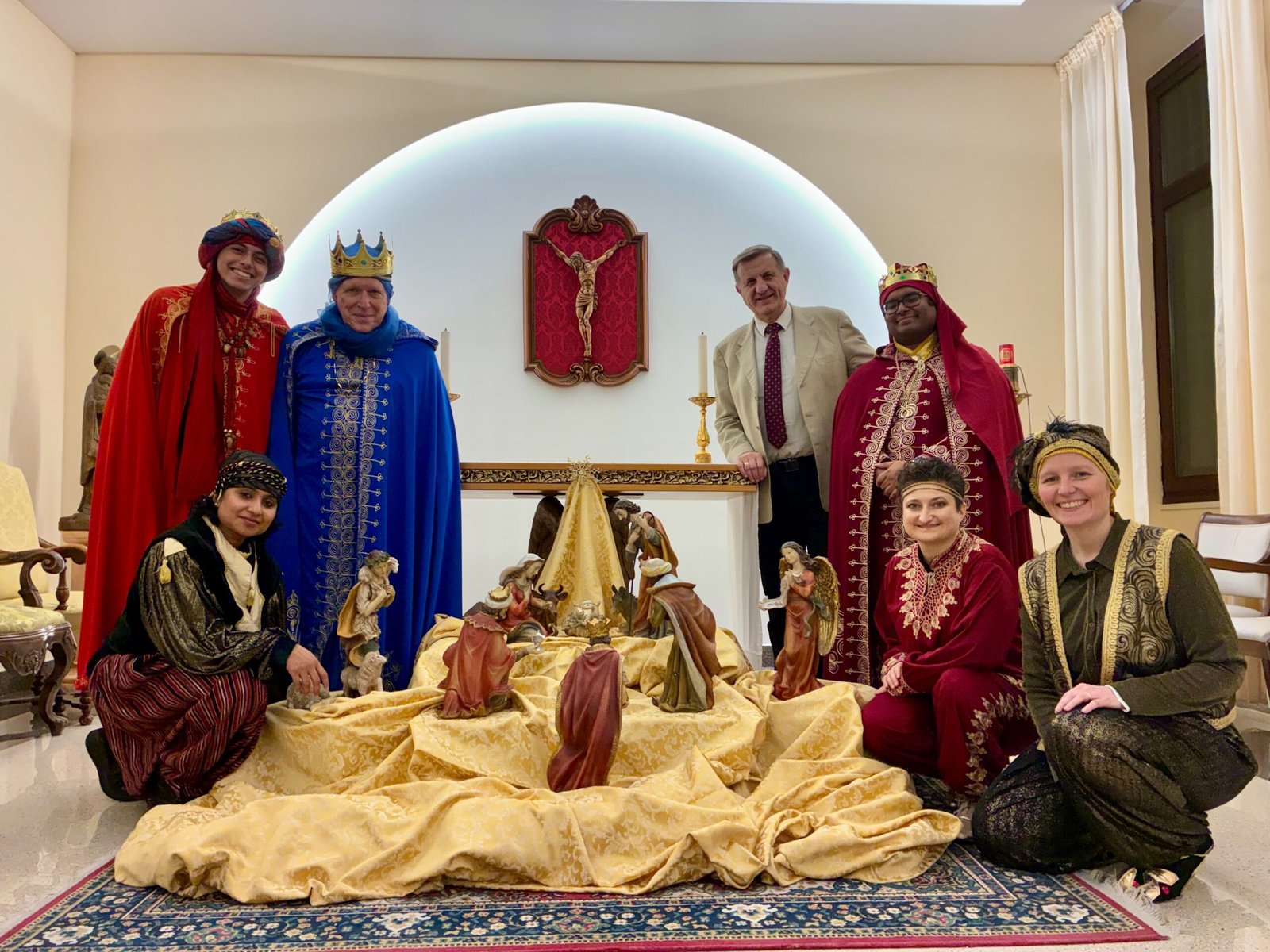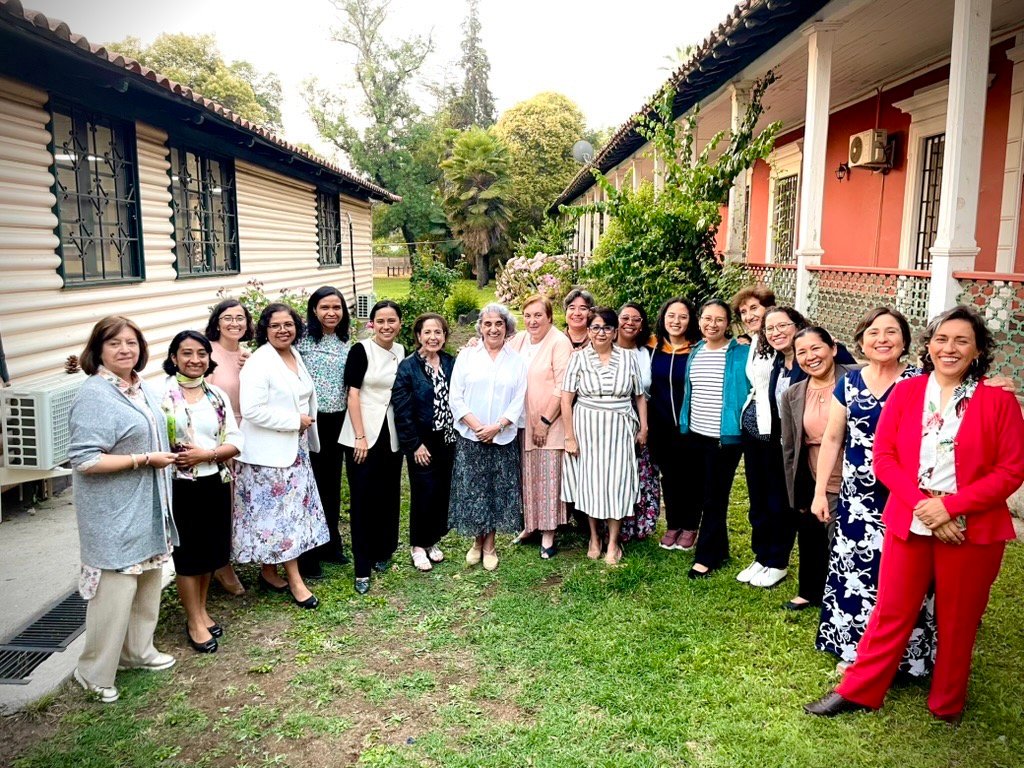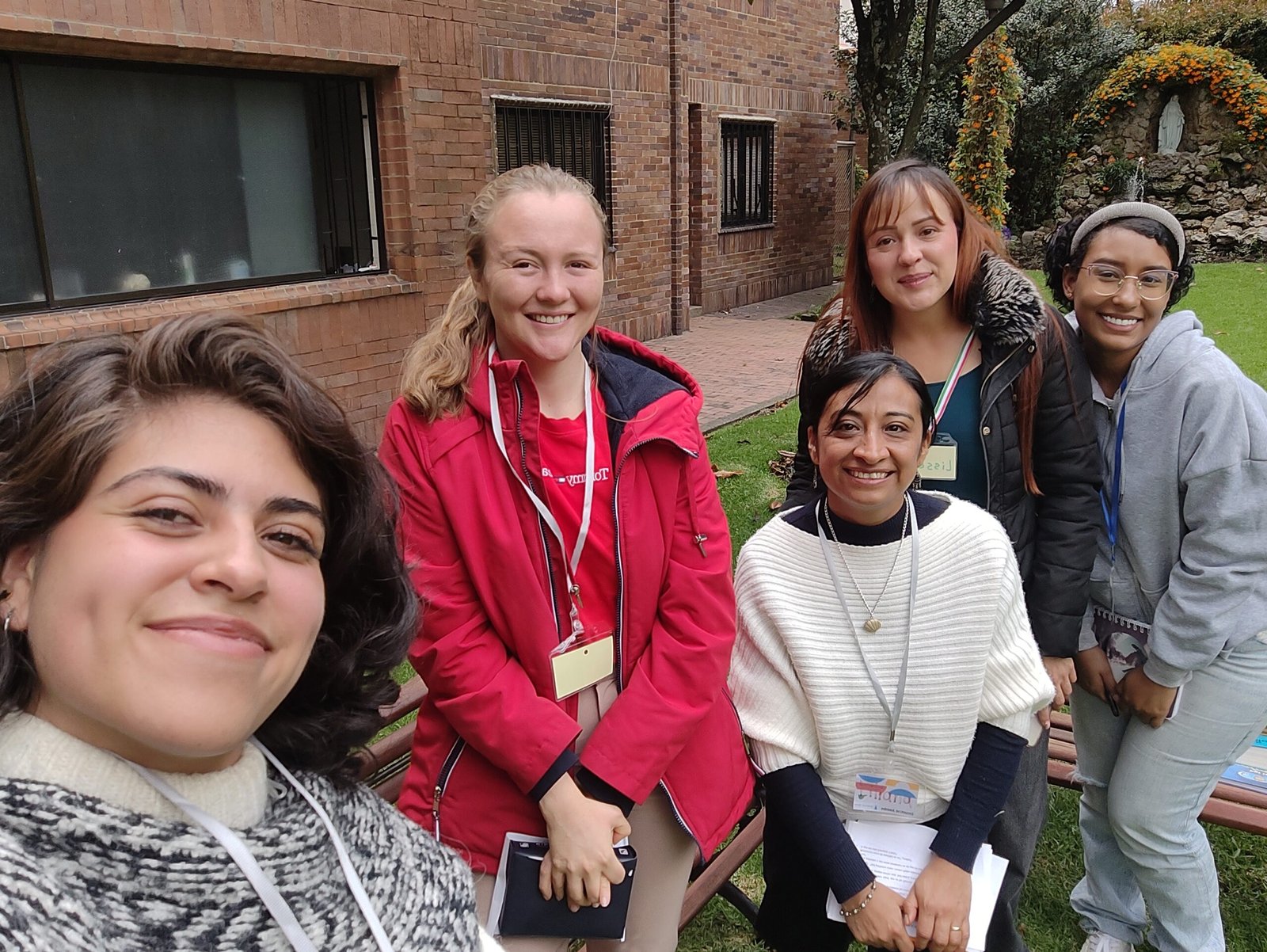
Holy Gospel of Jesus Christ according to Saint Luke 21,25-28.34-36
There will be signs in the sun, the moon, and the stars, and on earth nations will be in dismay, perplexed by the roaring of the sea and the waves.
People will die of fright in anticipation of what is coming upon the world, for the powers of the heavens will be shaken.
And then they will see the Son of Man coming in a cloud with power and great glory.
But when these signs begin to happen, stand erect and raise your heads because your redemption is at hand.”
Beware that your hearts do not become drowsy from carousing and drunkenness and the anxieties of daily life, and that day catch you by surprise
like a trap. For that day will assault everyone who lives on the face of the earth.
Be vigilant at all times and pray that you have the strength to escape the tribulations that are imminent and to stand before the Son of Man.”
Unto You I lift up my eyes
Luis CASASUS President of the Idente Missionaries
Rome, December 01, 2024 | I Sunday of Advent.
Jer 33: 14-16; 1Tes 3: 12; 4: 2; Lk 21: 25-28; 34-36
As we prepare to celebrate and take spiritual advantage of Advent, we are confronted with two warnings that stand out clearly in today’s Gospel: the terrible signs that will surround humanity and the need to be continually alert.
But, realistically, we must recognize that the present time is already full of such dreadful and horrible signs, both for the human race and for many individuals, and that, similarly, the coming of Christ is a permanent event. It seems that it is becoming impossible to live in our world. Abuses and injustices are committed at unsuspected levels; hatred reigns; there is violence, war, inhuman conditions. Nature itself is destroyed by the overexploitation of resources. The rhythm of the times and seasons is no longer regular… but Christ also continues to manifest his presence in ever new ways: new saints, new people who come to know God… especially new personal and community missions that no one would have imagined.
In our personal life we experience failures, miseries, weaknesses, infidelities. We cannot rid ourselves of defects and bad habits. Uncontrolled passions dominate us; we are pushed to adapt ourselves to a life of painful compromises and humiliating hypocrisies. Fears, delusions, regrets, unhappy experiences make us incapable of smiling. Is it still possible to regain confidence in ourselves and in others? Can anyone give us back serenity, confidence and peace?
Whoever becomes discouraged, whoever gives up in the face of difficulties, whoever becomes impatient with himself and with others, whoever expects to obtain immediate and radical transformations has not understood the rhythm of growth of the kingdom of God.
A true prophet is one who helps us to understand the signs of the new world that is emerging, who instills confidence and hope, who makes us understand that the kingdom of evil has no future, who, even in desperate situations, knows how to point out a way to recover, to rebuild a life that in the eyes of people may seem irretrievably destroyed.
Today’s message is not intended to instill fear, but rather to confirm that the coming of Christ is possible and takes place in the midst of the most difficult and bleakest conditions.
To give up, to surrender to an overwhelming sin that dominates the world and us, is a dangerous temptation.
The doomsayers are those who repeat endlessly: It is not worth compromising; nothing will change, evil is too strong. Hunger, wars, injustice and hatred will always exist.
They will not be heard. Those who, like Paul, have the mind of Christ (1 Cor 2:16) see reality with different eyes. They look at the new world that is being born and enthusiastically announce to all: Now something new is springing up. Do they not perceive it? (Is 43:19).
If we agree on the above, we can come to the conclusion that the Advent season is not simply four weeks to prepare for the arrival of the Christ Child, as the always premature commercial campaigns around the world cunningly propose.
In Advent we are not preparing for an imaginary event that exists only in fantasy. Our hope is based on the certainty that Christ is coming continually. In fact, he has already come among us in our own flesh. He has already loved us beyond death, has conquered sin and evil, and fills us each day with the hope of Eternal Life. That explains why today he tells us: When these things begin to happen, stand upright, with your heads held high, for deliverance is at hand.
—ooOoo—
Today, when the value of empathy is recognized, we do not realize that its fullness is found in hospitality, in the way we welcome our neighbor, beyond his ideas, difficulties, worries… it is about the way we give him entry into our heart, rather than just trying to know his. Just as in all cultures we decorate the house and take care of the menu when we welcome someone, the disciple of Jesus prepares his coming with an intimate and appropriate change for the Guest who arrives. This is clear in the contrast of two characters in the Gospel: the “correct” way in which Simon the Pharisee receives Christ in his house and the total openness of the sinful woman who perfumes the feet of the Master (Lk 7: 36-39). She abandoned the concern about her own fame. We can conclude that the way hospitality becomes an evangelical virtue is through self-abnegation.
In the Bible and elsewhere, we find numerous examples of hospitality. Thus, St. Bernard of Clairvaux was famous for interrupting his talks to his monks to meet with those who came to the door.
A young man, intending to progress in the spiritual life, once visited a hermit and was entertained by him. He feared that his presence had interfered with the severity of the hermit’s life, and as he was leaving he said to him: Father, forgive me if I have interrupted the observance of your rule of life. The hermit replied: My rule of life is to receive you with hospitality and let you depart in peace.
Hospitality is not a virtue to be lived “from time to time”. Let us note how, in the Second Reading, St. Paul encourages very diplomatically, shows his happiness at having received from Timothy good news about the faith and the coexistence of the Thessalonians, but he is not satisfied with that and exhorts them very specially to take care of the relationships among the members of the young Christian community, explicitly mentioning “charity among them”. Indeed, when in a family or a community differences of opinion about schedules, use of washing machines (yes; you read that right), or temperature of the house, are matters capable of creating division, we can be sure that those people have not even reflected on the meaning of charity.
It is no coincidence that the words hospitality and hospital have the same root. Both express the welcoming of those who need to be restored.
When we use the word hospitality, we traditionally refer to people who are not well known, or very different from us. Hospitality is not simply hosting parties or dinners for friends and family. It is specifically the virtue of reaching out to travelers, to the poor, to the forgotten, to the marginalized. It is to open one’s home to those who, humanly speaking, are in some way strangers to us.
Hospitality, in the spiritual life, means healing, not only to celebrate meals and meetings with care and affection, to which the Gospel also encourages all communities. For this reason, Deuteronomy already abounds in references to the most needy people:
He does justice to the orphan and the widow, and shows his love to the stranger, giving him bread and clothing (Deut 19: 18).
We are not able to know exactly what the person we welcome needs; our natural kindness, our best smile, the time dedicated to him/her are not enough.
Thus, St. John Paul II said:
Like the disciples on the road to Emmaus, believers, sustained by the living presence of the Risen Christ, become in turn companions on the journey with their brothers and sisters in difficulty, offering them the word that rekindles hospitality in their hearts. With them they break the bread of friendship, fraternity and mutual help (2 JUN 2000).
—ooOoo—
Our hospitality, first of all, must be lived in the way we welcome the person of Christ, both in the Eucharist, which cannot be routine, and in the way He inclines our thoughts and desires towards the Father, through the delicate and efficacious intervention of the Holy Spirit.
The fact that hospitality is a universal virtue, which transcends the differences between individuals and between human groups. Let us illustrate this with a simple and beautiful Hindu legend from Tamil Nadu (India).
In a small village in Tamil Nadu lived a farmer named Maran. He was so generous that he donated all his wealth or his life’s earnings to Lord Shiva’s devotees.
Lord Shiva wanted to show the world that Maran was imbued with true love and service towards His devotees.
One day, during the rainy season, a devotee of Shiva knocked at Maran’s door late at night. The farmer received him with a sincere smile and asked him to wait in the hall. When he asked his wife to cook something for him, she told him that there was no rice in the house. However, he remembered that they had planted rice on their land that day, and if they could harvest it, she could prepare some food.
Hearing his wife’s words, he felt happy as if he had recovered a lost treasure. He immediately set out to bring the rice seeds. It was pouring rain and it was pitch dark. She took a basket, covered her head and gathered as much rice as she could from the muddy field. The seeds floated in the rainwater. His wife prepared the food after cleaning them. Then, with his wife he gathered the vegetables from the backyard and prepared different dishes with the same vegetables.
When the food was ready, hot and steaming, Maran went to the front of the house to invite his guest for dinner. But the guest suddenly disappeared and in his place a glow arose and the couple saw the Divine Presence of Lord Shiva.
Of course, authentic hospitality requires preparation, foresight, patience and… usually changing our plans, as happened to the generous Maran. This is why the Season of Advent makes sense. Let us look at the promise of the LORD in the First Reading and how it took centuries for its full fulfillment, with the coming of Jesus Christ into the world.
Christ left us the Eucharist to give us the strength we do not possess. Therefore, we have no right to stop sowing, even if our legs weaken and our hands tremble.
For this reason, too, the Gospel text concludes with Christ’s invitation to prayer, not to allow the world to be a distraction or a source of permanent anxiety. That prayer is described simply as raising my head, that is, not looking in the mirror and keeping in mind that I am not alone, even if I cannot see everything; that at my side there are ALWAYS people who seek God, even if they do not say so; that the Holy Spirit gathers my tears and my joys to enlighten those who walk – for a thousand reasons – with a heavy heart.
When He comes for the last time, or when our last moment comes, we will be giving thanks for His help, which we do not always recognize.
As the eyes of slaves look to the hand of their master,
as the eyes of a female slave look to the hand of her mistress,
so our eyes look to the Lord our God, till he shows us his mercy (Psalm 123).
_______________________________
In the Sacred Hearts of Jesus, Mary and Joseph,
Luis CASASUS
President











